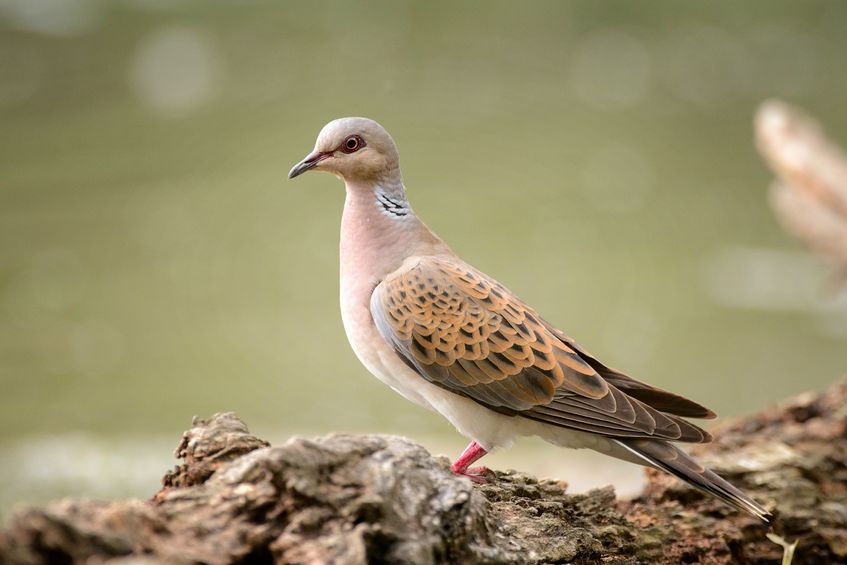
Farmers who help support a little seen but much loved Christmas icon should be given government subsidies, the RSPB suggests.
Turtle doves are one of the UK’s fastest declining species after populations have fallen by 98 percent since 1970.
Figures show there are approximately 1,000 breeding pairs left in the country.
Suffolk and Essex support almost 30 percent of the UK breeding turtle dove population, and conservation action in these areas is seen as vital in sustaining the population.
To help boost these figures, the Royal Society for the Protection of Birds (RSPB) says farmers and land managers should be rewarded in restoring and enhancing the natural environment.
Speaking to The Telegraph, Guy Anderson, the charity's migrant birds expert, said farms could set up reserves specifically for the species.
“In the UK we know that there is a real danger that without urgent action the turtle dove may be lost as a breeding species, and we could lose its distinctive summer purr from the countryside forever,” he told the paper.
“Every year they fly here all the way from Africa to raise a family, and the best way we can help them is to ensure that once they arrive there is enough food and shelter available so they can feed themselves and their young.”
The RSPB said it is supporting farmers and land managers in different ways to create the habitats and food the species needs to keep the bird in the UK.
The charity has helped a Cambridgeshire farm, run by G's Growers Co-operative, to become more turtle dove friendly.
The farm has now dedicated 10 hectares of land in an effort to provide the food and habitat the bird needs to prosper.
“We are already seeing the effects of this in areas where groups are working with us,” Mr Anderson said.
He added that the government should introduce new legislation to help support nature-friendly farming.
“We should ensure that our farmers and land managers are rewarded for the positive role they play in restoring and enhancing our natural environment, and encourage more to look at how they can help species such as the turtle dove.”
“And looking globally, nature knows no boundaries, so it is important we are working with all of the countries along the turtle dove flyway to ensure these amazing birds are getting the protection they need,” Mr Anderson said.
Michael Gove first announced the government's 'green Brexit' plans last year when he was Defra Secretary.
He set out plans to scrap the CAP, which he called 'environmentally damaging and socially unjust'.
Under the new post-Brexit direction, farmers will be rewarded for planting wildlife habitats, woods, wildflower meadows and other environmental benefits.
